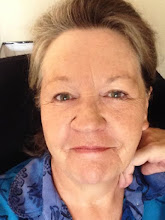Hi there. I was born in South Africa during the Apartheid era. My parents were middle-class white South Africans and, as a result, my life was generally very comfortable, with domestic workers to clean the house and gardeners to take care of the garden. In those days these adult men and women were referred to as 'the garden boy' and 'the girl', terms that black South Africans rightly found very insulting. It is with embarrassment that I admit that until I started work at the age of 18 I never paid much attention to politics and I seldom questioned the policy of separate segregation that was applied in South Africa by the Nationalist Government.
Then the mining corporate, Anglo American, came into my life in the form of my first employer and it was like a light bulb exploding in my consciousness. Suddenly I was interacting with people from other race groups on an equal footing and whatever racist tendencies I may have had flew out of the window. I often wonder what my political viewpoint would have been today if I had not gone to work for Anglo American where we were all treated as equals.
When the 1976 student riots happened in Soweto I was in the position of traveling by suburban train to get to and from work. As I sat in the comfortable compartment one day with a stone-shattered window beside me, the thought came to me: “If I had been born black in South Africa I would have thrown the first stone.”
For me the 1976 riots were a turning point in my life, empathising with the kids as I did, that caused me to have strongly divergent political views to most of my siblings and relatives. Although I did not become an activist I certainly became a black empathizer.
As the years passed and I got older, fatter and hopefully a little wiser, change happened in South Africa. Nelson Mandela was eventually released from jail. South Africans voted for democracy for the first time in April 1994 and Nelson Mandela became our first democratically elected black president.
After the democratic elections, freedom of association became a reality for all South Africans. In 1999, as a direct consequence of that freedom of association, my husband−whom I’ll call Mad Max in my blog−and I started fostering a three-year-old black child whose mother was not able to care for him for various reasons. Here was a chance for us to give of ourselves as restitution for any hardship, directly or indirectly, that we had caused to our fellow South Africans from other race groups during the Apartheid years. Our beautiful boy has been with us for eleven years now and although he can be more than a handful at times we would not want to be without him in our lives.
The South African Constitution, which is hailed as one of the most progressive in the world, enshrines certain rights. Not least of these rights is: ”Everyone has the right to life.” Everyone, therefore, includes the most vicious and cold-blooded criminals of which South Africa has more than a few.
We are told that the death penalty does not prevent anyone from committing heinous acts of rape and murder. Supposing this is true, is it just a coincidence that prior to the abolishment of the death penalty there were an average 7036 recorded murders per year between 1950 and 1993. Since 1994, with the abolishment of the death penalty in 1995, there have been an average 24 206 recorded murders per year. Part of me screams out for the reinstatement of the death penalty and another part of me says: Would you be prepared to be the one pressing the button that results in the execution? The answer to that question is a very vehement no.
During our two decade marriage, Mad Max and I have been more fortunate than most. He once had a briefcase stolen out of his car and on one occasion we disturbed robbers who had managed to gain entry to our home when we had nipped out, very briefly, to buy some groceries. In both instances our losses were negligible and we didn’t even file insurance claims. There were a couple of other really inconsequential incidents that weren’t even reported to the police.
Our one and only encounter with ‘serious’ crime was four days after I started staying home after being medically boarded in 2000. When we could least afford it, Mad Max was car-jacked−at gunpoint− in our garage as he was parking the car. The entire incident was over so fast that it was almost unreal. All Mad Max could remember about any of the car-jackers was ‘they smelled as though they had just bathed’. That wasn’t particularly helpful to the police as they do not have sniffer dogs trained to trace that ‘freshly showered’ smell of the average criminal.
It is probably safe to say that every one of our relatives, friends or acquaintances, of every race, sex and creed, has been affected by crime to a greater or lesser extent in the 16 years since the 1994 elections.
Yet South Africa remains the country I love. The place where I feel an affinity with all it’s people (except the criminal element).
South Africa is the place where I can tell if its going to rain by the smell of the wind; the place where winter is more of an illusion than a reality; the place where the sun shines brightly for more days in the year than not and, sadly, the place where you could be killed for a shiny coin simply because you have it and the other person doesn’t.
Yes, the crime rate is high in South Africa, but so are the hopes of law-abiding citizens. And where there is hope things can only get better.
(All rights reserved.)

No comments:
Post a Comment